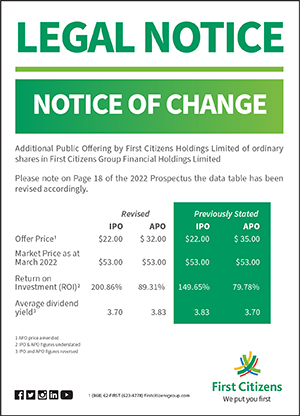How Regulatory Changes Affect the Investment Landscape
Commentary

Regulatory changes refer to the adjustments, updates, or new laws and guidelines set by government agencies or regulatory bodies that oversee various industries and activities. Governments and regulatory bodies often revise policies to respond to emerging risks, advancements in technology, market trends, and economic challenges. These changes can present both opportunities and challenges for investors, who must navigate a constantly evolving landscape where compliance requirements can potentially impact financial risks and returns. As regulations become stricter or more lenient across different sectors, industries, and regions, investors must strive to understand their effects in order to adapt their investment strategies, manage risks, and capitalize on new opportunities.
Regulatory Framework
Changes in regulation or the introduction of new rules can greatly impact how a company operates. To comply with these regulations, businesses may need to adapt by adopting new technologies, updating practices, or completely revising existing processes. This often requires a thorough review of internal policies and procedures, and employees may need training to ensure they understand and follow the new requirements. For many companies, this can result in increased operational costs, and the burden is often heavier for small and medium-sized enterprises (SMEs) that have fewer resources compared to larger firms.
To protect their bottom line, businesses may transfer these increased costs to consumers in the form of higher prices, potentially resulting in decreased demand for their products. Some companies however may find it challenging to transfer the higher cost to their customers, which can lead to a compression of profit margins. As margins shrink, a company’s earnings per share (EPS) and dividend payouts may decline, reducing the stock’s appeal to investors. This diminished attractiveness often prompts shareholders to sell their holdings, exerting downward pressure on stock prices. For example, tariffs introduced during trade disputes between the U.S. and China negatively impacted companies in sectors like technology and manufacturing.
In an environment of declining profitability, earnings typically suffer, further diminishing the allure of the stock. Investors, driven by the goal of maximizing portfolio returns, may choose to divest from the company, accelerating the fall in share prices. To conserve cash, companies experiencing financial strain may reduce or suspend dividend payments. This action can alienate income-focused investors, resulting in even lower demand for the stock and a further decline in its value.
Reduced profitability also raises concerns about a company’s ability to repay its debts. This perceived increase in credit risk can cause the yields on the company’s bonds to rise, as investors demand a premium for holding potentially riskier debt. Credit rating agencies may downgrade the company’s bonds due to declining profitability, further increasing borrowing costs and reducing investor interest.
Regulatory changes can also heighten market volatility, particularly when such changes are abrupt or ambiguous, as they introduce uncertainty into the industry and broader market. The lack of clarity around whether the modifications will ultimately prove advantageous or detrimental may cause investors to adopt a more cautious stance, prompting a sell-off of riskier assets like stocks in favor of safer investments such as bonds. This shift in sentiment can lead to short-term market fluctuations, including sharp drops or sudden spikes. Additionally, some investors might engage in speculative trading, betting on either a rebound or further decline, which can exacerbate price swings and deepen market uncertainty.
However, not all regulatory changes are damaging. In many cases, heightened or stricter regulations can offer advantages to investors. By making industries more secure and stable, these regulations often reduce overall risk. A clear example of this occurred following the 2008 financial crisis, when more stringent rules were enforced on banks to curtail reckless behavior, ultimately transforming banks into safer investments by mitigating the risk of failure.
Certain regulatory changes can reshape investor preferences across asset classes, as seen with the global adoption of carbon reduction frameworks. These initiatives, aimed at curbing emissions, have profoundly impacted capital allocation, incentivizing investors to channel funds toward renewable energy, energy efficiency, and other low-carbon technologies. As a result, sectors like solar, wind, electric vehicles, and green infrastructure have experienced a surge in investment.
In parallel, this shift toward clean energy has prompted investors to reduce their exposure to high-emission industries, particularly fossil fuels, in favor of companies actively mitigating climate risks. This divestment trend has placed significant pressure on carbon-intensive companies to transition toward cleaner, more sustainable operations.
Additionally, this movement has given rise to innovative financial instruments, such as green bonds and sustainability-linked loans. Green bonds are debt securities designed to finance projects that generate positive environmental outcomes, while sustainability-linked loans tie key terms, such as interest rates to the borrower’s performance against specific environmental, social, or governance (ESG) targets. These instruments underscore the growing intersection of finance and sustainability, as investors increasingly seek to align their portfolios with global environmental goals.
Economic Policy
Economic policies, including fiscal policy, monetary policy, and tax regulations, serve as key instruments through which governments regulate and guide the economy. Changes in these policies can also have profound effects on the investment environment by shaping market conditions, business operations, and investor behavior.
Monetary policy, overseen by a nation’s central bank, involves the regulation of interest rates and control of the money supply. When the central bank adopts a more restrictive stance, often by raising interest rates, borrowing costs for both businesses and consumers increase. This rise in costs can dampen consumer spending and business investment, ultimately slowing down economic growth. Moreover, as interest rates climb, bonds and other fixed-income securities become more attractive compared to stocks, prompting some investors to shift their capital away from equities and toward safer, income-generating assets.
Conversely, when the central bank implements an expansionary monetary policy by lowering interest rates, borrowing becomes more affordable. This encourages both consumer spending and business investment, spurring economic growth. In such an environment, stocks often become more appealing as companies may experience higher profits, and investors seek better returns in equities compared to the lower yields offered by bonds.
Fiscal policy, which encompasses government spending and taxation, also plays a crucial role in shaping economic activity and, by extension, the investment landscape. Increased government spending—particularly in areas like infrastructure, healthcare, or defense—can stimulate economic growth, leading to a surge in stock market performance, especially in sectors directly benefiting from the expenditure. On the contrary, when governments reduce spending or raise taxes to control budget deficits, economic growth can slow, reducing corporate profits and prompting stock market declines as investors brace for weaker future returns.
Tax policies, including corporate tax rates, capital gains taxes, and personal income taxes, have a direct impact on business profitability and investment returns. A reduction in corporate tax rates, for instance, can boost company profits, enabling higher dividend payments or allowing more earnings to be reinvested for future growth, which in turn makes stocks more attractive to investors.
On the other hand, higher capital gains taxes can reduce the after-tax returns on investments, making stocks and other assets less attractive. Consequently, investors may be discouraged from actively buying and selling stocks or other assets, leading to reduced trading volume. Investors may be more inclined to hold onto their assets longer to defer tax payments, which can decrease market liquidity.
Political developments have wide-ranging effects on capital markets, influencing everything from individual stock prices to overall market stability. For investors, staying informed about political events and their potential market impact is essential for making sound investment decisions, managing risks, and optimizing returns.
DISCLAIMER
First Citizens Bank Limited (hereinafter “the Bank”) has prepared this report which is provided for informational purposes only and without any obligation, whether contractual or otherwise. The content of the report is subject to change without any prior notice. All opinions and estimates in the report constitute the author’s own judgment as at the date of the report. All information contained in the report that has been obtained or arrived at from sources which the Bank believes to be reliable in good faith but the Bank disclaims any warranty, express or implied, as to the accuracy, timeliness, completeness of the information given or the assessments made in the report and opinions expressed in the report may change without notice. The Bank disclaims any and all warranties, express or implied, including without limitation warranties of satisfactory quality and fitness for a particular purpose with respect to the information contained in the report. This report does not constitute nor is it intended as a solicitation, an offer, a recommendation to buy, hold, or sell any securities, products, service, investment or a recommendation to participate in any particular trading scheme discussed herein. The securities discussed in this report may not be suitable to all investors, therefore Investors wishing to purchase any of the securities mentioned should consult an investment adviser. The information in this report is not intended, in part or in whole, as financial advice. The information in this report shall not be used as part of any prospectus, offering memorandum or other disclosure ascribable to any issuer of securities. The use of the information in this report for the purpose of or with the effect of incorporating any such information into any disclosure intended for any investor or potential investor is not authorized.
DISCLOSURE
We, First Citizens Bank Limited hereby state that (1) the views expressed in this Research report reflect our personal view about any or all of the subject securities or issuers referred to in this Research report, (2) we are a beneficial owner of securities of the issuer (3) no part of our compensation was, is or will be directly or indirectly related to the specific recommendations or views expressed in this Research report (4) we have acted as underwriter in the distribution of securities referred to in this Research report in the three years immediately preceding and (5) we do have a direct or indirect financial or other interest in the subject securities or issuers referred to in this Research report.

